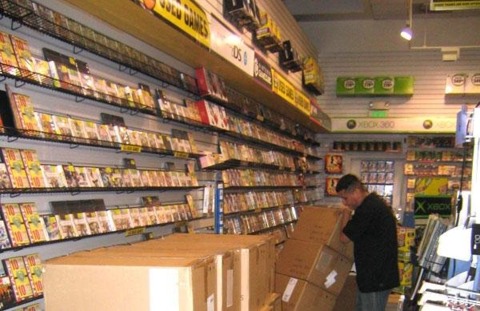Retailers cut down on M-rated sales to minors
FTC secret shopper program finds stores following ESRB age guidelines; kids able to buy M-rated games just 13 percent of the time.
The Supreme Court is considering the constitutionality of a California law that would make it illegal to sell violent games to children, but the Federal Trade Commission today revealed the results of a secret shopper program showing companies are already far less likely to put M-rated games in kids' hands than they are to sell them R-rated DVDs, tickets to R-rated movies, or music CDs with explicit lyrics.

Between November 2010 and January 2011, the FTC sent unaccompanied 13-to-16-year-olds into various national and regional chains to try to obtain media deemed unsuitable for their age group. Just 13 percent of the kids were able to buy games rated M-for-Mature, making games the medium with the most retailer compliance for its rating system. Some 64 percent of the teens were able to buy CDs with a parental advisory label, while 33 percent were allowed to purchase a ticket to an R-rated movie. As for DVDs, the teens were able to purchase films carrying an R rating 38 percent of the time, while unrated DVDs were sold to children 47 percent of the time.
The FTC has conducted such secret shopper programs seven times since 2000, when the agency criticized the game, movie, and music industries for intentionally marketing inappropriate content to children. In that first study, retailers sold M-rated games to children 85 percent of the time. At the time, only music with explicit lyrics was as easy for children to purchase, according to the FTC.
The study also broke down the compliance rates for specific retailers. The FTC's secret shoppers were able to purchase M-rated games at Wal-Mart 20 percent of the time, making it the least compliant of the retailers tested. Target stores were the most vigilant, with minors allowed to buy M-rated games 8 percent of the time. Specialty retailer GameStop was a close second, with secret shoppers permitted an M-rated purchase on 9 percent of attempts.
In the wake of the FTC's announcement, the Entertainment Software Association, Entertainment Merchants Association, and Entertainment Software Rating Board all trumpeted the commission's findings. In his organization's announcement, ESA president Michael Gallagher called the FTC report validation that the ESRB is the "gold standard" of self-regulatory systems.
"Those who would criticize the industry’s commitments are either ignorant of facts or are actively pursuing a political agenda," Gallagher said. "We look forward to building on this level of success."
Got a news tip or want to contact us directly? Email news@gamespot.com
Join the conversation